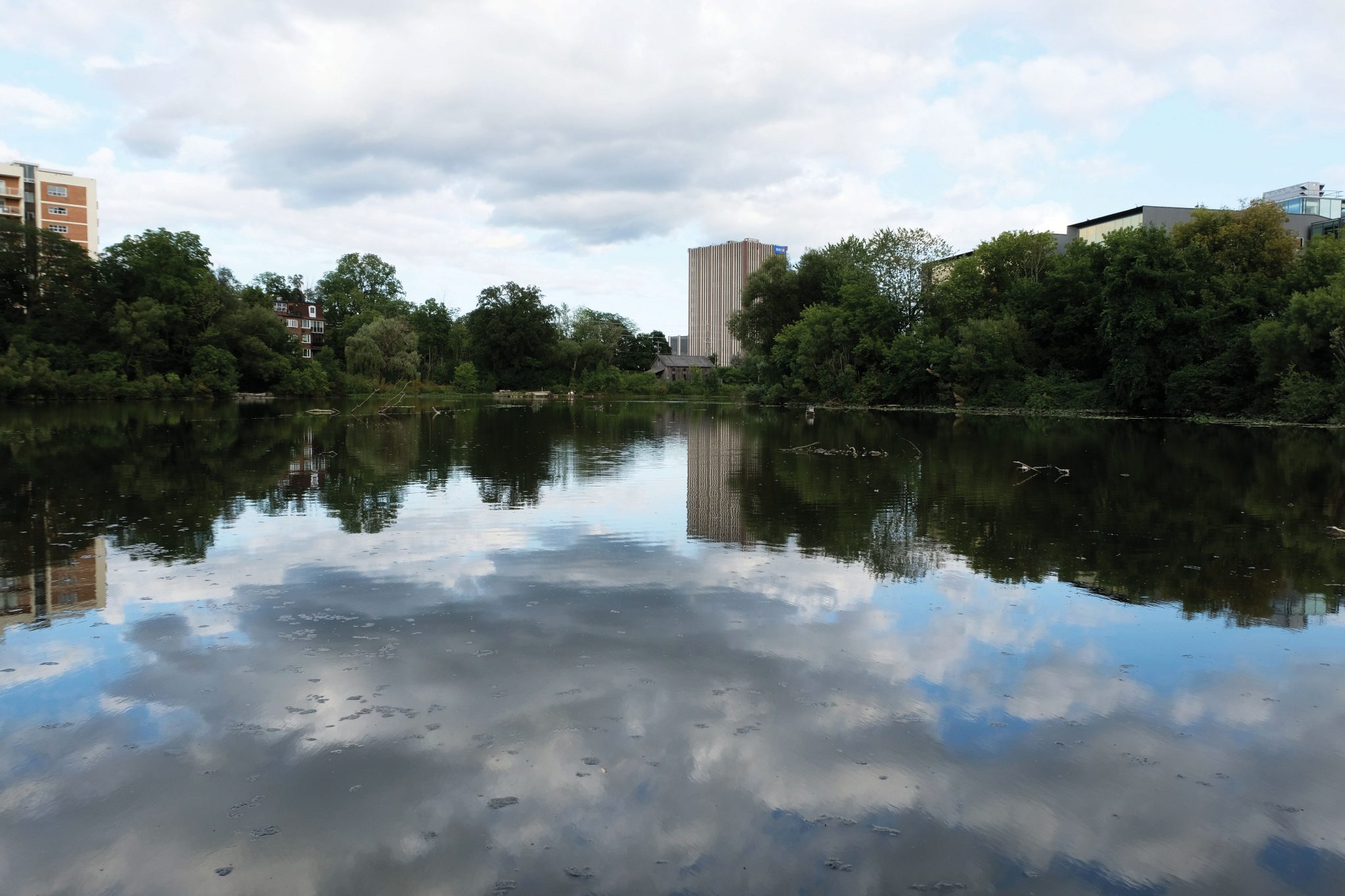The effects of climate change on Canada’s water bodies

Researchers at Laurier’s Institute for Water Science are encouraging the public to educate themselves on the troubling water levels that are occuring not just in oceans, but our own backyards as climate change causes warmer temperatures across bodies of water.
Contrary to the belief that climate change will cause houses and land to flood with rising temperatures, smaller bodies of water will actually see a rise in evaporation rates due to the warmer climate.
“With increasing temperatures, you’re going to have a lot more severe storm events, we’re already seeing that with all the heavy storms we have, but weather does not equal climate change; it’s long term trends, but what we are seeing is 50 or 100 year floods in various places,” said Michael Wilkie, co-director of the Laurier Institute for Water Science.
“Toronto had flooding against this year due to a storm, those are immediate effects we will see, in the Great Lakes the water levels are very high and whether or not that is due to climate change we really don’t know yet, but it’s certainly part of the models where you’ve got a lot more precipitation up north, a lot of snow melt in the spring and lake Superior and Huron at record levels.”
With rising water levels happening on urban shores, cities must be prepared to face the effects it will have on certain infrastructures, which is why even in a part of the country surrounded by land and far from a coastline, these changes can still be detrimental.
With increasing temperatures, you’re going to have a lot more severe storm events, we’re already seeing that with all the heavy storms we have, but weather does not equal climate change; it’s long term trends, but what we are seeing is 50 or 100 year floods in various places.
— Michael Wilkie, co-director of the Laurier Institute for Water Science
“People are studying the effects of temperature, water chemistry a lot more than they used to; before when we looked at it we would just be looking at how animals cope with normal seasonal changes in temperature, but now there’s a lot more work on how animals are responding to larger streams,” Wilkie said.
“On the other hand, in the wintertime, people are starting to see winter temperatures are actually getting higher, that can have a lot of an impact on animals and plants, but when you’re getting these types of shifts in thermal environments it can affect growth rates.”
Wildlife in water bodies are essential to the ecosystems in each area they belong to, not only being part of a food chain but also regulating reproduction as when the temperatures rise, oxygen levels deplete in water, and aquatic life has a higher resting metabolic rate with higher temperatures meaning they need more oxygen than usual. Researchers have found that this reaction to rising temperatures has caused Atlantic salmon to be endangered in some areas.
“In many bodies, and could happen in the Grand River, if water temperatures increase it becomes more stressful for animals to migrate to their spawning grounds, a lot of energy gets devoted to other tasks like surviving the spawn, or they die before they even get the spawn, so some fish populations could be negatively affected that way, some of the smaller fish in this area,” Wilkie said.
As researchers strive to slow down and potentially reverse the effects of climate change, Laurier has been named a STARS Gold campus in sustainability, as well as being named Ontario’s most sustainable campus in 2017.
Many new buildings have implemented change to continue to be sustainable, including the newly constructed Lazaridis Hall, as it’s high-efficiency toilets that produce energy and recycle water have caused the building to receive a LEED Gold certification.
“Staying informed is the best way to make a change, listening to reputable sources … don’t fall for the propaganda, for lack of a better term, from climate change deniers, because it’s happening,” Wilkie said.
“I’m a physiologist, I measure things, people who are tracking climate change measure things, you can go way back to figure out what the climate was like way before now, there’s no doubt we are in the most rapidly warming time going back thousands of years, same with CO2 in the atmosphere. I tell my students, stay informed and keep the politicians and leaders informed as well.”


